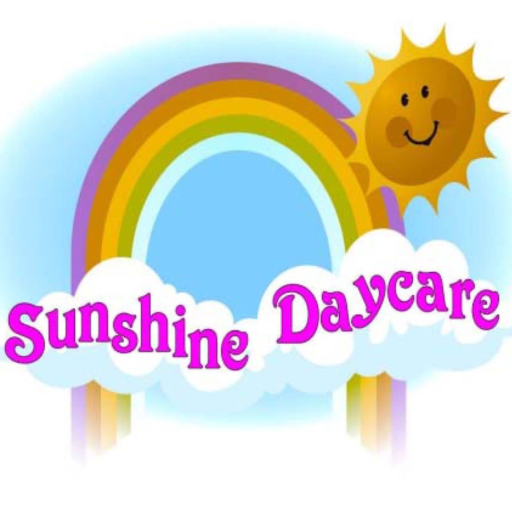Academic
We provide nurturing, engaging programs tailored to different age groups to support every child’s growth and development. Our curriculum is designed to foster creativity, independence, and social skills while ensuring every child feels safe, supported, and valued.
At Sunshine Home Daycare, we understand that infants grow and learn at an incredible pace during their first year. Our academic program for infants is designed to provide a safe, nurturing, and stimulating environment that fosters healthy development.
Key Program Elements
- Language and Communication Development:
- Responsive interaction through talking, cooing, and singing to encourage early language skills.
- Reading picture books and storytelling to build listening and vocabulary foundations.
- Encouraging imitation of simple sounds to develop communication skills.
- Sensory Exploration:
- Introducing a variety of textures through soft toys, fabrics, and sensory mats.
- Visual stimulation with colorful, high-contrast toys and mobiles.
- Gentle music, nature sounds, and auditory toys to develop listening skills.
- Physical Development:
- Tummy time to strengthen neck, shoulder, and core muscles.
- Assisted sitting, rolling, and crawling activities to promote gross motor skills.
- Grasping and reaching games to support fine motor skill development.
- Cognitive Growth:
- Cause-and-effect toys, like rattles or activity centers, to foster early problem-solving.
- Peek-a-boo and object permanence games to encourage memory and cognitive connections.
- Social-Emotional Bonding:
- Individualized care routines to establish trust and secure attachments.
- Positive reinforcement through smiles, cuddles, and verbal encouragement.
- Group interactions with other infants to begin understanding social cues.
- Daily Schedule for Infants:
We follow each infant’s unique needs for feeding, napping, and play while introducing gentle routines that encourage consistency and security.
Toddler Program (1–3 years)
Toddlers are naturally curious explorers. Our program is designed to nurture their growing independence and cognitive abilities. At Sunshine Home Daycare, our academic program for toddlers focuses on providing a nurturing, engaging, and developmentally appropriate learning environment. We aim to foster curiosity, creativity, and foundational skills through structured and play-based activities.
Key Components of the Program:
- Language Development:
- Storytime with picture books to encourage early vocabulary.
- Singing nursery rhymes and songs to promote language and rhythm.
- Interactive discussions during circle time to build communication skills.
- Cognitive Development:
- Simple puzzles and matching games to develop problem-solving skills.
- Hands-on exploration with sensory bins to enhance understanding of textures, shapes, and patterns.
- Sorting and stacking activities to support early math concepts like size and quantity.
- Fine Motor Skills:
- Activities like coloring, scribbling, and playing with playdough to strengthen hand-eye coordination.
- Simple art projects using crayons, finger paints, and stickers.
- Gross Motor Skills:
- Daily indoor and outdoor playtime, including climbing, ball games, and movement songs.
- Structured activities like “animal walks” to enhance physical coordination and strength.
- Social and Emotional Learning:
- Group play to practice sharing, turn-taking, and cooperation.
- Activities that help toddlers recognize and express their emotions, such as “Feelings Circles.”
- Exploration and Creativity:
- Opportunities for open-ended play and pretend scenarios to spark imagination.
- Themed activities and crafts to explore seasonal or weekly topics.
- Language Development:
Daily Routine for Ages 1-3:
Our program incorporates a consistent yet flexible daily schedule that balances learning, play, meals, and rest. Activities are designed to meet the developmental milestones of toddlers and encourage joyful exploration.
At Sunshine Home Daycare, our program for children aged 3-5 years is designed to inspire confidence, imagination, and readiness for kindergarten through a curriculum tailored to their growing curiosity and independence. We focus on encouraging critical thinking, collaboration, and creativity while fostering a love for learning in a supportive, stimulating environment. Activities are thoughtfully crafted to align with their developmental milestones, preparing them for a seamless transition to formal schooling.
Key Program Components:
- Language and Literacy Development:
- Introduction to letters and sounds through phonics-based activities.
- Storytime to enhance listening skills, comprehension, and vocabulary.
- Opportunities for self-expression through journaling, storytelling, and group discussions.
- Mathematical Concepts:
- Hands-on activities to explore counting, sorting, and patterns.
- Games to introduce shapes, sizes, and basic measurements.
- Fun, interactive problem-solving tasks like puzzles and block building.
- Science and Exploration:
- Simple experiments to foster curiosity and understanding of the world.
- Nature walks and observation of seasonal changes.
- Discussions and activities related to the weekly theme, such as shadows or weather.
- Creative Arts:
- Open-ended art projects using a variety of materials like paint, crayons, and recycled items.
- Music and movement sessions to encourage rhythm and creativity.
- Dramatic play to develop imagination and social skills.
- Social and Emotional Development:
- Group activities to promote sharing, cooperation, and problem-solving.
- Emotion recognition and regulation exercises, such as “Feelings Circles.”
- Opportunities to lead and take responsibility through rotating classroom jobs.
- Physical Development:
- Daily outdoor play for gross motor skills development, including running, jumping, and climbing.
- Indoor activities like yoga, dancing, and obstacle courses.
- Fine motor activities like cutting, threading, and building with smaller objects.
- School Readiness Skills:
- Developing focus and routine through scheduled activities.
- Encouraging independence in tasks like dressing, eating, and organizing materials.
- Practicing classroom behaviors like raising hands, waiting turns, and group participation.
